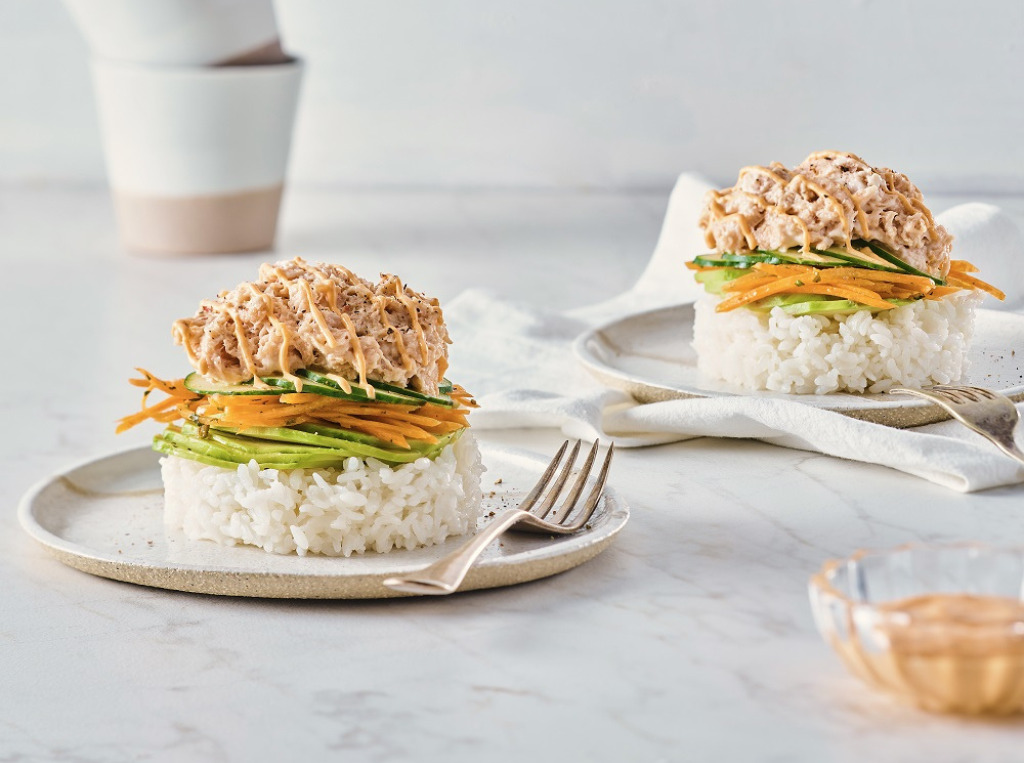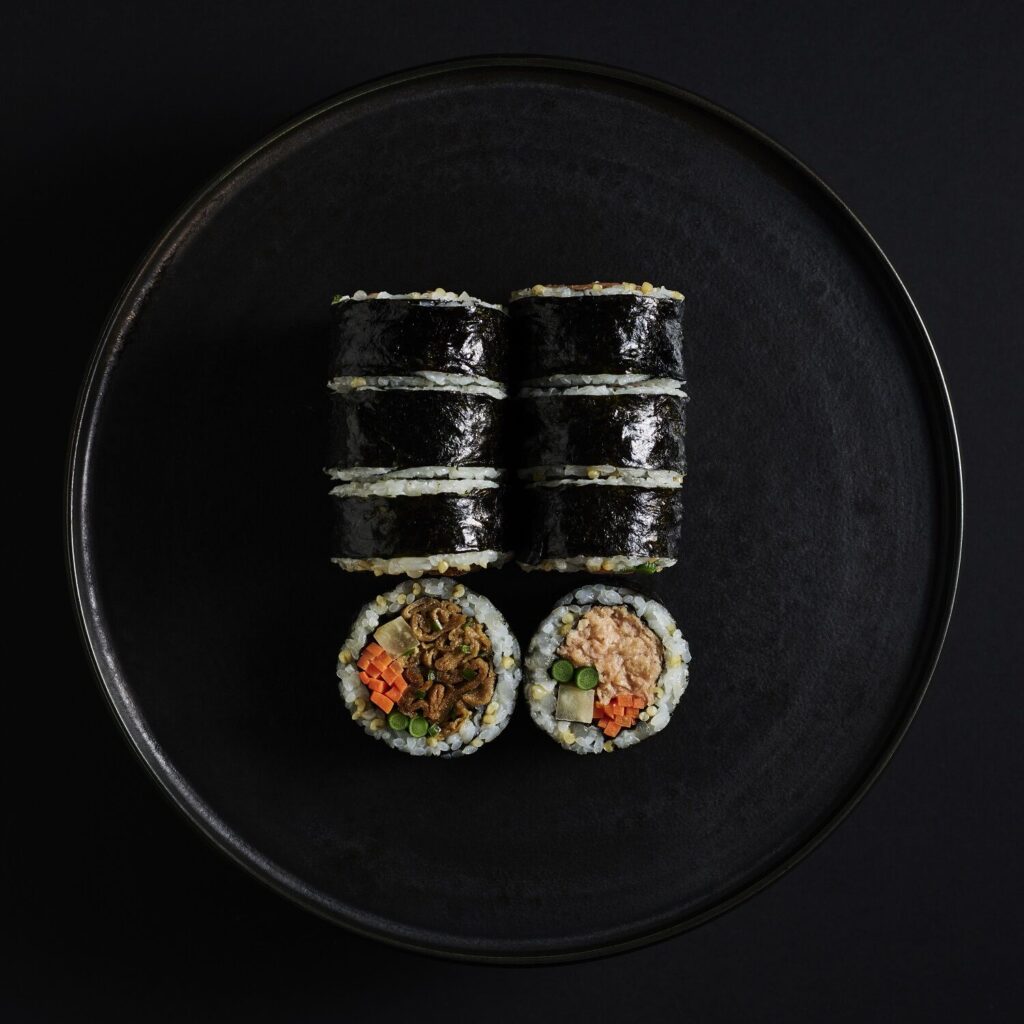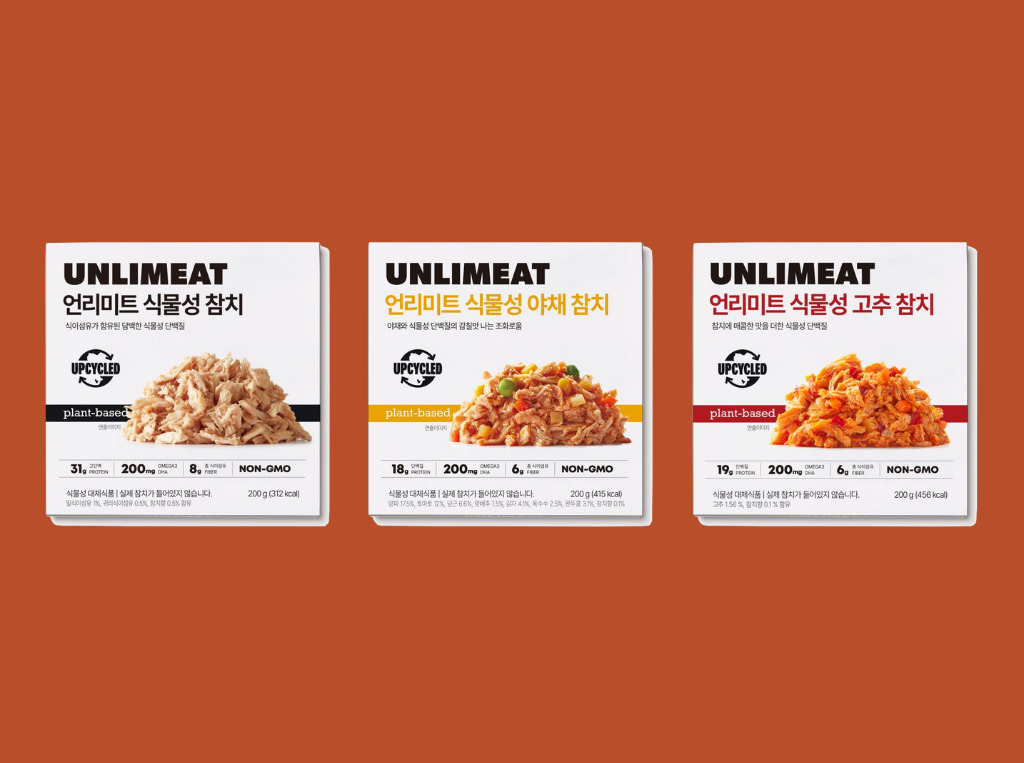South Korea’s Unlimeat Joins Burgeoning Alt-Seafood Space with Upcycled Plant-Based Tuna
4 Mins Read
South Korean plant-based meat company Unlimeat is expanding its portfolio with three vegan tuna products. The company makes alt-meat by using upcycled ingredients (like grains) that would otherwise go to waste. The new plant-based tuna contains DHA, an omega-3 fat usually found in conventional tuna – making it a nutritional win for the brand.
Unlimeat’s tuna is a blend of soy protein, wheat fibre and oat fibre, alongside sunflower oil, fermented vinegar, cacao powder and DHA. Its sauce contains ingredients including coconut oil, potato powder and soy extract. It comes in three flavours: Original, Vegetable Tuna and Red Pepper Tuna.
Announcing the launch on LinkedIn, Unlimeat founder Keum Chae Min said: “Unlimeat plant-based tuna contains 120mg of DHA extracted from plants, and non-GMO ingredients were used in all products. It does not contain trans fat or cholesterol at all, and the protein content is 31 g for original tuna, 17 g for vegetable tuna, and 15 g for red pepper tuna.”
Unlimeat’s vegan tuna is available in South Korea this month. Chae Min confirmed on LinkedIn that the company is also planning to launch the product in Europe. The tuna is also an ingredient in the brand’s Plant-Based Gimbab.
Unlimeat’s journey

Unlimeat was launched in 2019, using proprietary protein extrusion developments to make slices of plant-based BBQ beef. Already present in Hong Kong, Australia, Taiwan and the UAE, it launched in the US last year through online channels. Now, its product portfolio includes vegan pulled pork, jerky, beef mandu (a Korean dumpling), mince, pepperoni and sausage.
Earlier this year, its Korean BBQ product was recognised at the 2023 Food and Beverage Awards (FABI) in Chicago. Speaking ahead of Unlimeat’s US launch, Chae Min had said: “Korean BBQ is becoming popular in the USA, so we’re hoping this original, traditional Korean BBQ recipe straight from Korea will be popular. We hope we’ll attract a lot of attention from American consumers.”
In May, the brand collaborated with the Korean-style corn dog chain Two Hands in the US, launching a vegan option containing Unlimeat’s plant-based sausage.
Alt-seafood on the rise

Unlimeat joins a burgeoning alt-seafood category with its vegan tuna launch. The Good Food Institute reported a 40% year-on-year increase in pound sales for plant-based seafood in 2022. And as of 2021, there were over 120 companies in the alternative seafood space (which includes vegan, fermentation-based and cultivated seafood).
The seafood industry has a lot of environmental and human rights blemishes. Overfishing operations receive $22B in capacity-enhancing subsidies every year, a figure the UN special envoy Peter Thomson has called “madness”. And growing demand for seafood has led to higher greenhouse gas emissions, while the heavy fuel use by ocean fishery vessels also contributes to the climate crisis.
The industry is also rife with child and slave labour, and the use of plastic packaging and presence of microplastics in the ocean deepen its problems. The 2021 documentary Seaspiracy details the endemic issues attached to this sector.
Speaking to Green Queen last year, Lily Ng, owner of Manhattan-based vegan seafood company Lily’s Vegan Pantry, said: “Overfishing disrupts the food chain. And when populations are diminished, other species will overpopulate, destroying biodiversity and making changes to the entire ecosystem. In the end, our consumption of fish still destroys our planet.”
It has led to increased investment and new product development – such as Unlimeat’s plant-based tuna – in the vegan seafood category. Startups like Konscious Foods and Hooked Foods have all received funding this year itself, while two European brands received a €1.5M grant to create 3D-printed mycoprotein to replace seafood.
Unlimeat’s tuna is available for foodservice applications too, which is key considering the year-on-year growth potential of vegan seafood in US restaurants is 57%.
“The average consumer is becoming more aware of animal welfare and sustainability,” Maarten Garaets, alt-protein managing director of seafood giant Thai Union, told Green Queen in May. “And this is becoming a more important part of the selection criteria when they are buying food, but this is still a very small group.”
He added: “Alternative seafood is a new category, with limited awareness, whereas meat is more established. However, seafood is bound to catch up soon. Health is less of a concern for seafood, whereas sustainability will be more of a lever.”




